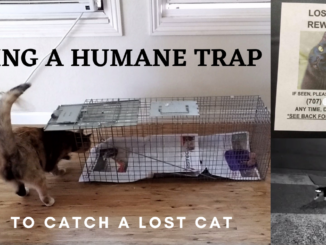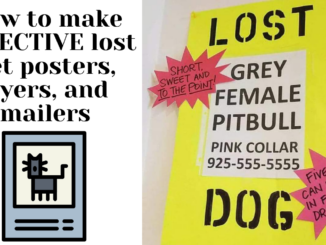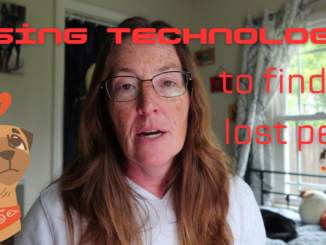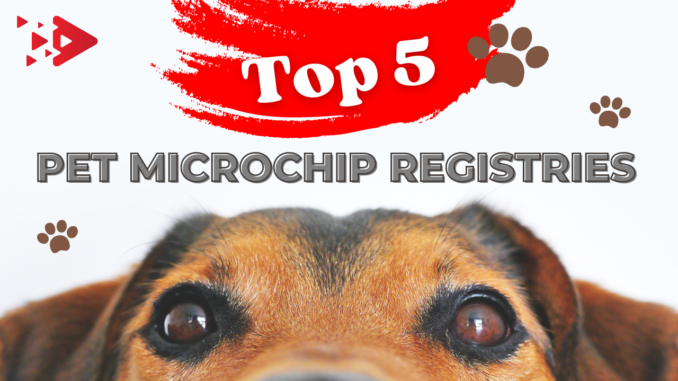
A microchip can save your pet’s life, but it must be registered. With more than 30 registries in the United States, how do you know which one to choose? Here are the Top 5 best registries for 2023 based on the company’s history, customer service, price, and other important factors.
When microchipping came out in the 90’s we thought it was the Holy Grail. Never again would a pet go missing! Now, 25 years later, unfortunately it didn’t work out that way. Many pets are not microchipped, and of those that are, as many as 50% are not currently and correctly registered.
Sometimes finders don’t have the pet scanned, leading to the many news stories of reunions years after they went missing. Sometimes the shelter scans, but due to a low battery or other malfunction the chip number does not read. Sometimes the shelter does the minimum required to search for the owner, but without time to go the extra mile, the owner is not found and in some cases, the pet is adopted by a new owner before the original even has a chance to find him. It’s not a perfect system.
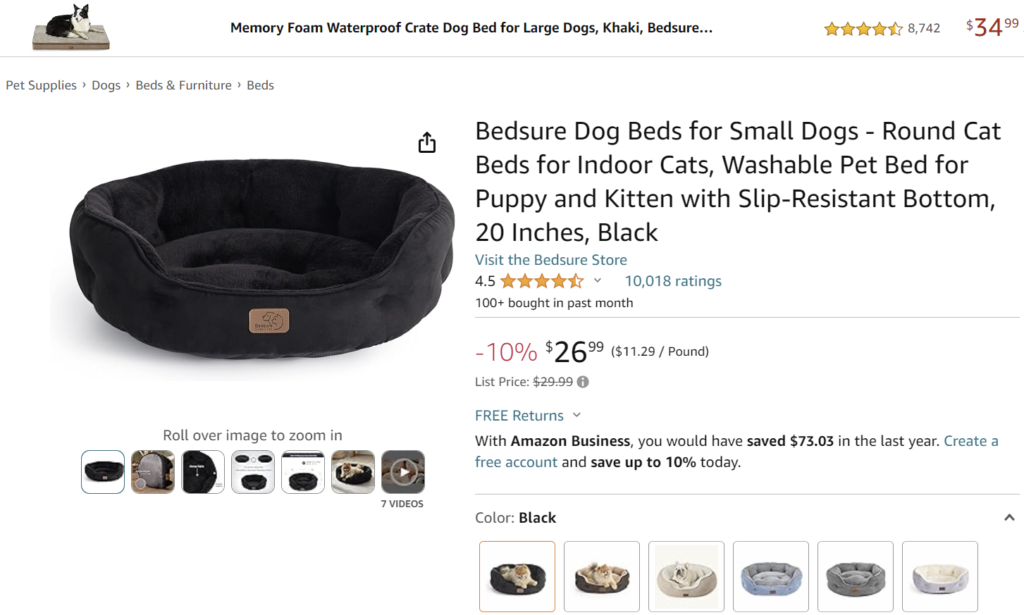
Despite the potential flaws and setbacks, we recommend that all pets be chipped and registered for lifetime identification. The cost for purchase and insertion is minimal (usually no more than $50 at a veterinarian), takes a few minutes, and provides a lifetime of protection. Understanding how the system works is key to using it to your best advantage.
What’s the difference?
With so many different microchips and registries, how do you know which to choose? What’s the difference between the many brands of chips and registries? Nano, ISO, biocompatible … what does it all mean? No fee, lifetime fee, yearly fee … which is best? While competition is good for most businesses, it can be detrimental in the area of pet microchipping. What started as a few chips and registries in the early 90’s has grown into a huge industry with new companies popping up every year. This confuses both owners and animal welfare workers, and leads to more work for both.
Thank goodness we now have searchable databases like Pet Microchip Lookup in the U.S., and similar tools in other countries like Pet Address in Australia and Check-a-Chip in the U.K. How do these databases work? When your lost pet is found and taken to a vet or shelter, they will scan for a chip. What comes up on the scanner is not your information but a code number. That number is (or should be) registered in a registry, but how do you know which one? There are more than 20 registries in North America alone.
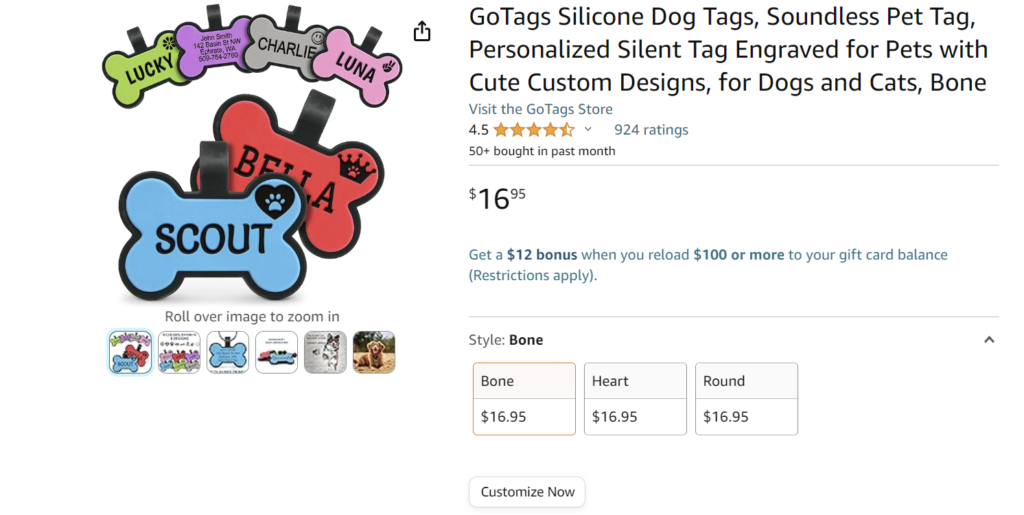
Shelter and vet staff don’t have time to make 20 phone calls for every found pet, so they go to the database website and enter the chip number. This tool tells them if the chip is registered, with which registry, and when. It shows the name and contact information for the appropriate registry so they can do the research and hopefully get in touch with the owner ASAP.
What’s covered in the table?
The table in this article provides a comparison of important features of a list of microchip registries. What started as a simple research product took me down quite the rabbit hole of information. Lost pet alerts, pet insurance, travel assistance… With a little help from my friends in the industry I boiled it down to the factors most important to pet owners. Factors more important to animal welfare professionals like chip and scanner pricing, ease of registration at the time of adoption or owner reclaim, and customer service when searching for an owner will be discussed in a future article and video.
I don’t list some things which apply to all registries. All chips sold today in the U.S. should be ISO compliant and read by any ISO scanner. All chips are biocompatible, meaning they should not cause a reaction in the body. There is no difference in function between the standard sized and the tiny or “nano” chip, so I did not differentiate. If you prefer the tiny chip for your pet, go ahead and choose a company that sells them. Most registries allow the user to upload pictures, medical records, and other data related to their pet at no additional charge. Many include an ID tag, stickers, and other small items with registration. Some sell these items and others like t-shirts, collars, and leashes.
This table includes cost for basic registration, what is included, cost for premium registration, what is included, and extras. Extras are special products and/or services offered by the company, usually at an additional charge. In this column I also included charitable programs of interest outside the realm of microchipping. “Lost pet recovery hotline” indicates a phone number that can be called any time to get a live operator. “Online pet recovery” indicates a web form that can be used to report a lost or found pet. For 2023 I added a new column, “Apps.” Most people today manage their accounts of all kinds on mobile devices so this may be an important consideration when choosing a registry. Microchip registry apps include features like pet profiles, QR code scanners for ID tags, and lost pet alerts in your area.
The companies listed are all participants in the AAHA Pet Microchip Lookup, which means that they can be easily searched by the vet or shelter scanning the chip. These are U.S.-based companies as far as I can tell. I did not include companies that have a very old website with little to no information, companies that only sell microchip products but do not have a registry, and companies that have been bought out by other companies on the list.
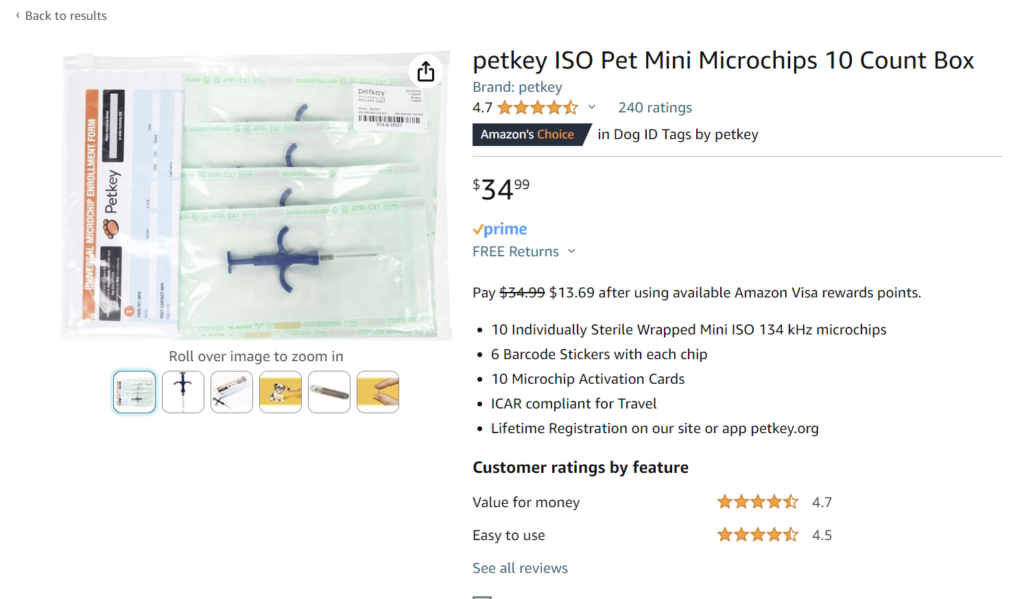
Disclaimer
I compiled this information based on the websites of the various microchip companies. While I spent many hours researching and reporting to the best of my ability, I make no guarantees that this information is 100% accurate. I recommend that you contact any microchip company yourself with any questions about their services and prices. Check them out before purchasing or registering. How long have they been in business? Are they well known and likely to be around for a while? What happens to the database if they go out of business, a concern for smaller or lesser known companies? Look at many factors, not just price, before making your decision.
I hope this table and accompanying video will help you choose the best microchip products and services for you and your animal family.


